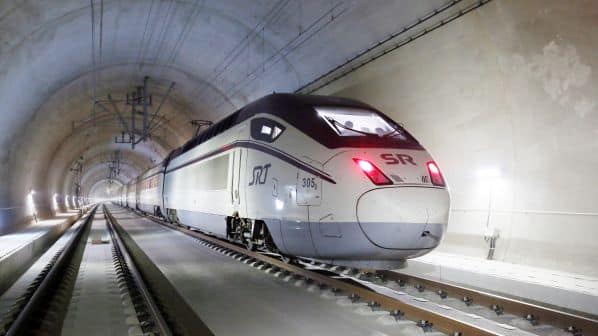KOREA’s Ministry of Land, Infrastructure and Transport (Molit) has announced that a merger between national rail operator Korail and Supreme Rail (SR) has been shelved for the time being.
Molit says that the impact of the Covid-19 pandemic on railway finances has extened the timescale for carrying out a full cost:benefit analysis of the proposed merger.
SR began operating Korea’s first open-access high-speed services in 2016 and its SRT trains now run from the Suseo district of Seoul to destinations including Mokpo and Busan.
Running in direct competition with Korail KTX high-speed services, SR offers cheaper fares and slightly shorter journey times.
Under the Fourth National Railway Plan, a governance commitee was established to carry out a fair and objective analysis and assesment of the current competitive structure between the two operators.
Comprising labour and management representatives from Korail, SR and infrastructure manager KNR, in addition to other experts selected by each company, the committee began discussions in March 2021 and has met 20 times.
A Molit spokesperson said that the period of regular operations prior to the Covid-19 pandemic was not long enough to properly assess important factors relating to the proposed merger, such as staff efficiency, maintaining rail operations and the development of the national rail industry.
“Although the two companies operated normally for three years from 2017 to 2019, due to the emergence of Covid-19 in 2020 there were limitations to carrying out an analysis,” the spokesperson said. “As a result, a consensus was reached by the committee to postpone any decision on whether the merger should go ahead or not.”
SR points to the passenger benefits that competition has brought. Its fares are 10% lower than the national operator and prompted Korail to revive its programme offering KTX passengers discounts according to the distance they travel.
It is estimated that passengers have received an average of Won 150.6bn ($US 116.8m) a year in discounts since the programme was reintroduced at the end of 2016.
SR adds that the current structure has improved the overall quality of passenger services and has seen the introduction of more new services. The open-access operator pays higher track access charges than Korail, which it says is helping to pay back the huge deficit accumulated in building Korea’s high-speed network.
In response, Korail says that the revival of distance-based discount programme was unrelated to the arrival of on-track competition. “There have been other external factors that facilitated the improvement of high-speed railway services in addition to competing services,” it says.
Korail is in favour of the merger, claiming that overlapping costs between the two companies add up to Won 40.6bn a year. It says that combining the two companies would also reduce limitations on the inter-availability of ticketing such as conditions for rebooking tickets.
SR passengers are currently ineligible for the 30% discount when changing to conventional Korail services.
Korail also believes that it would be able to increase the overall number of high-speed services as one entity, by running to a more efficient timetable rather than operating longer trains in multiple.
SR said that Korail’s arguments needed more careful and detailed analysis. “The issues inconveniencing customers can be resolved through cooperation between Korail and SR, and an increase in the number of overall services may be difficult to implement due to safety reasons when taking into account current rail capacity of 92.6%.”
Molit says that it respects and accepts the outcome of the lengthy discussions undertaken by the stakeholders and experts of the governance committee. It adds that despite the latest decision, it is confident that the discussions taking place will ultimately bring benefits for the general public and help improve the industry where there are deficiencies.
“The transition from monopoly to a competitive system is the basic direction of railway development abroad,” says Korea’s minister of land, infrastructure and transport, Mr Won Hee-ryong.
"We will induce healthy railway competition within the public sector so that rail services responsible for transporting the public can be further developed.”

